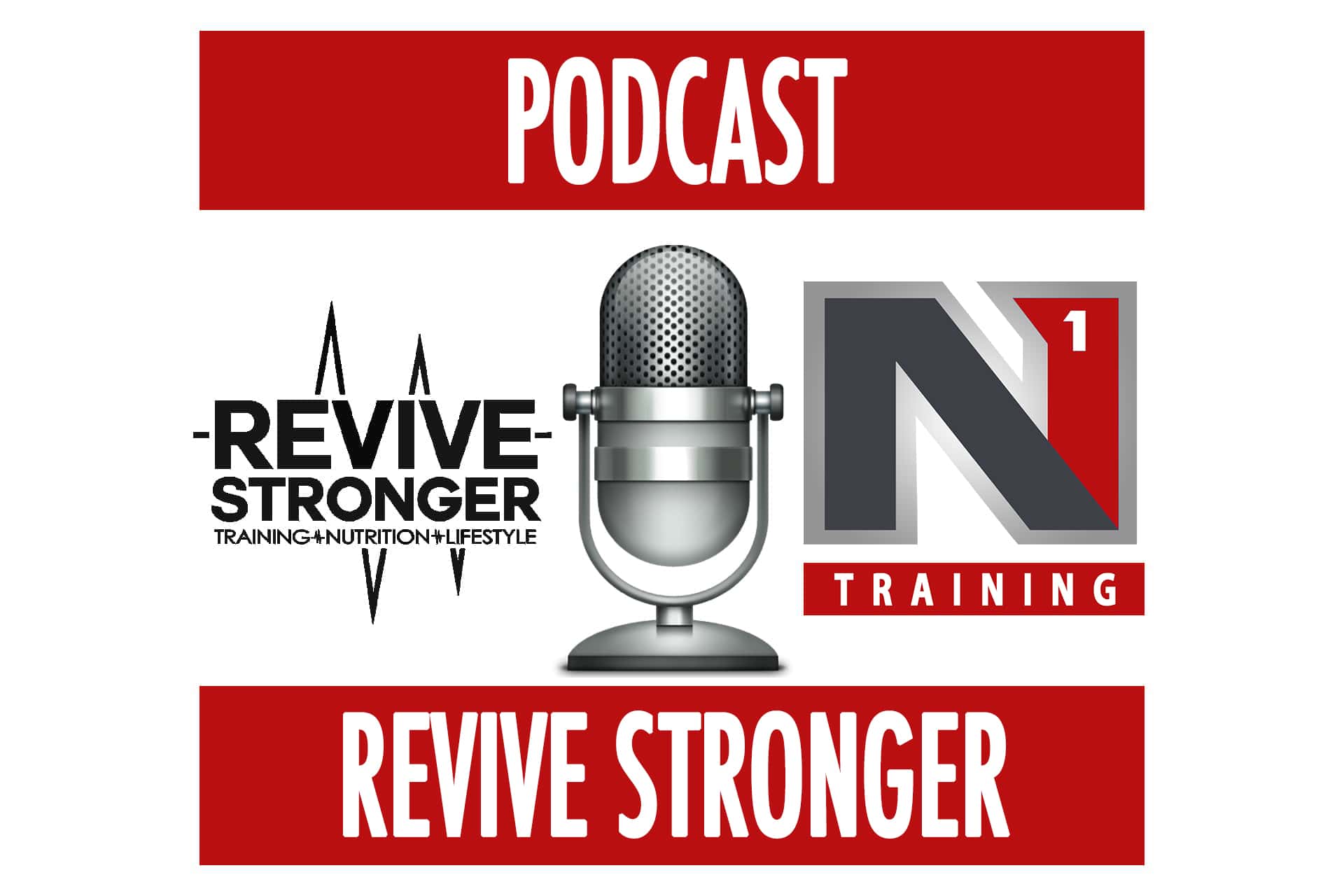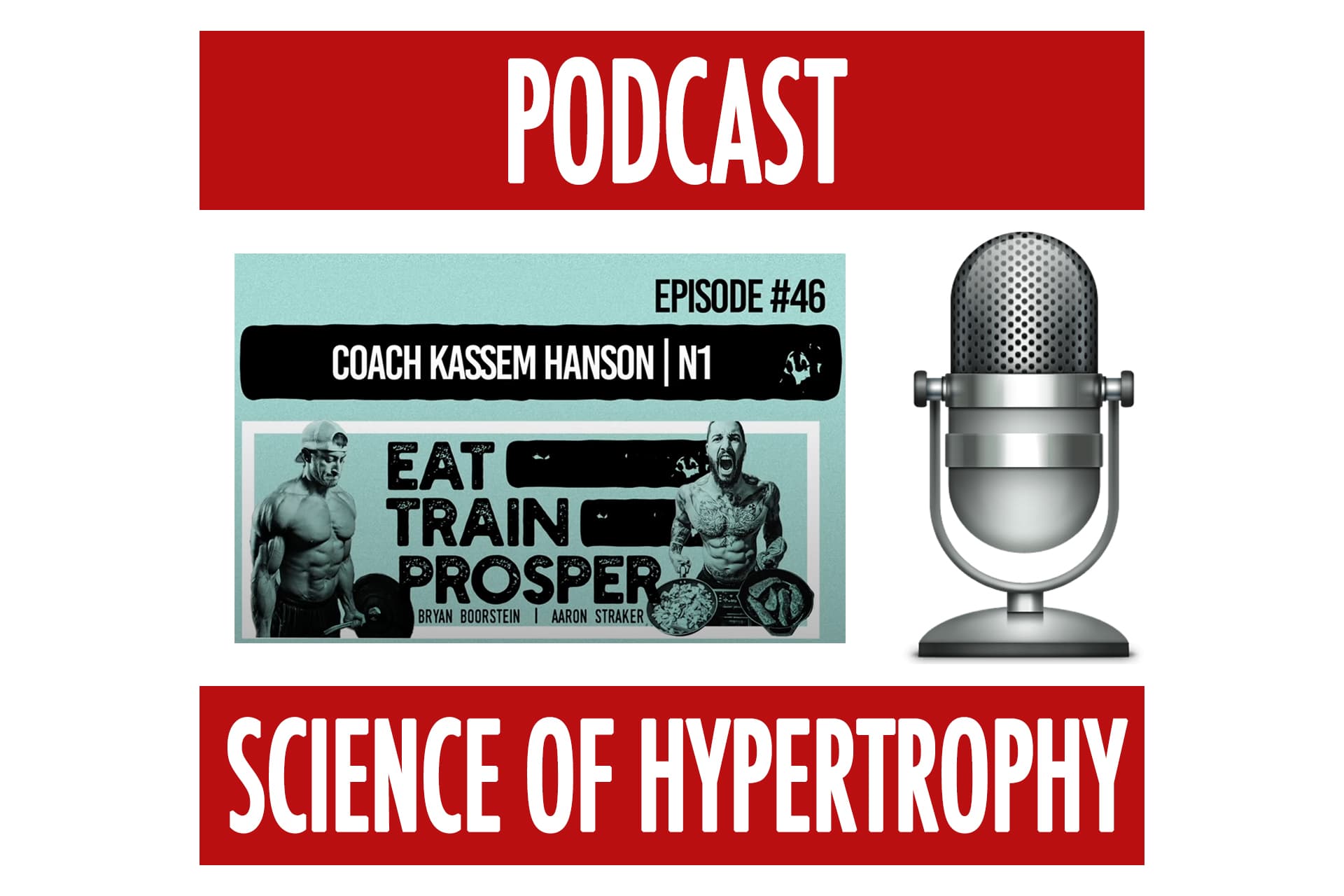N1 Experience E2: Milo Wolf & Dr. Pak – Long Muscle Length Training Evidence VS False Claims
n1 training
Available On:
Appealing to science in a false or misleading manner is becoming a popular tactic by fitfluencers in search of likes and credibility and this is a challenge for science communicators trying to get out an accurate message. In our second guest episode of the N1 Experience, Kassem speaks with soon to be doctor (PhD) Milo Wolf and Dr. Pak Androulakis-Korakakis about the research of training with partial range of motion ROM, and some of the misleading and unsubstantiated claims about the subject. Social media has resulted in a lot of highly visible personalities in the fitness space.
00:03:00 – What is the latest research on training at longer muscle lengths?
00:10:28 – How much of a difference does training at longer muscle lengths make?
00:18:00 – Everybody wants to be a science communicator but nobody wants to do any science!
00:19:46 – In the era where the mechanism have not been uncovered, how do we communicate and apply the evidence to individuals.
00:33:13 – Practical observations from the N1 Lab. Fatigue, injury, ROI of different exercises.
00:46:45 – Kassem’s best practices. Real world coaching nuances.
00:52:40 – The unique data from the Pedrosa study ( leg extension partials)
00:57:38 – Adjacent factors and correlations with training at longer muscle lengths and how it impacts fatigue, volume and effort.
01:02:34 – Potential pitfalls of training exclusively with lengthened partials. Should we be concerned about regional hypertrophy?
01:09:24 – Addressing unsubstantiated claims regarding fascicle length.
01:17:58 – Do you also need a lengthened biased resistance challenge and not just a longer muscle length?
01:22:03 – Addressing misleading claims around neuromechanical matching.
01:29:59 – Discussing the research on matching resistance and strength profiles/curves
01:37:00 – Using the lats as an example of problems with oversimplified neuromechanical matching models.
01:41:15 – The impact of neuromechanical matching on muscle specific RIR. Biased vs Omni or less specific exercises
01:54:45 – Responding to criticisms of optimizing exercise selection and technique.
Dr Pak
https://www.instagram.com/dr__pak/
Milo Wolf
https://www.instagram.com/wolfcoach_/
References:
Partial range of motion training elicits favorable improvements in muscular adaptations when carried out at long muscle lengths. Pedrosa Et Al – https://pubmed.ncbi.nlm.nih.gov/33977835
Longer And Stronger: How Range Of Motion And Muscle Lengths Affect Muscle Growth And Strength Gains https://www.strongerbyscience.com/rom/
Partial vs full range of motion resistance training
A systematic review and meta-analysis
https://sportrxiv.org/index.php/server/preprint/view/198
Triceps brachii hypertrophy is substantially greater after elbow extension training performed in the overhead versus neutral arm position. Mayo Et al – https://pubmed.ncbi.nlm.nih.gov/35819335
Greater Gastrocnemius Muscle Hypertrophy After Partial Range of Motion Training Performed at Long Muscle Lengths. Kassiano et al. https://pubmed.ncbi.nlm.nih.gov/37015016
If you enjoyed the episode, help us promote the show:
YouTube: Like & Subscribe
Apple Podcast: Review
Spotify: Subscribe
We appreciate the support!!
N1 Experience E1: Dr. Helms – Evidence Based Coaching & Partial ROM Training
videoFREE Hypertrophy Podcast TrainingPodcast: Eat Train Prosper – Hypertrophy Science
videoFREE Hypertrophy Podcast Program Design Training
Popular Pages
Learn & Train With Us
Add N1 Training to your Homescreen!

Please log in to access the menu.





